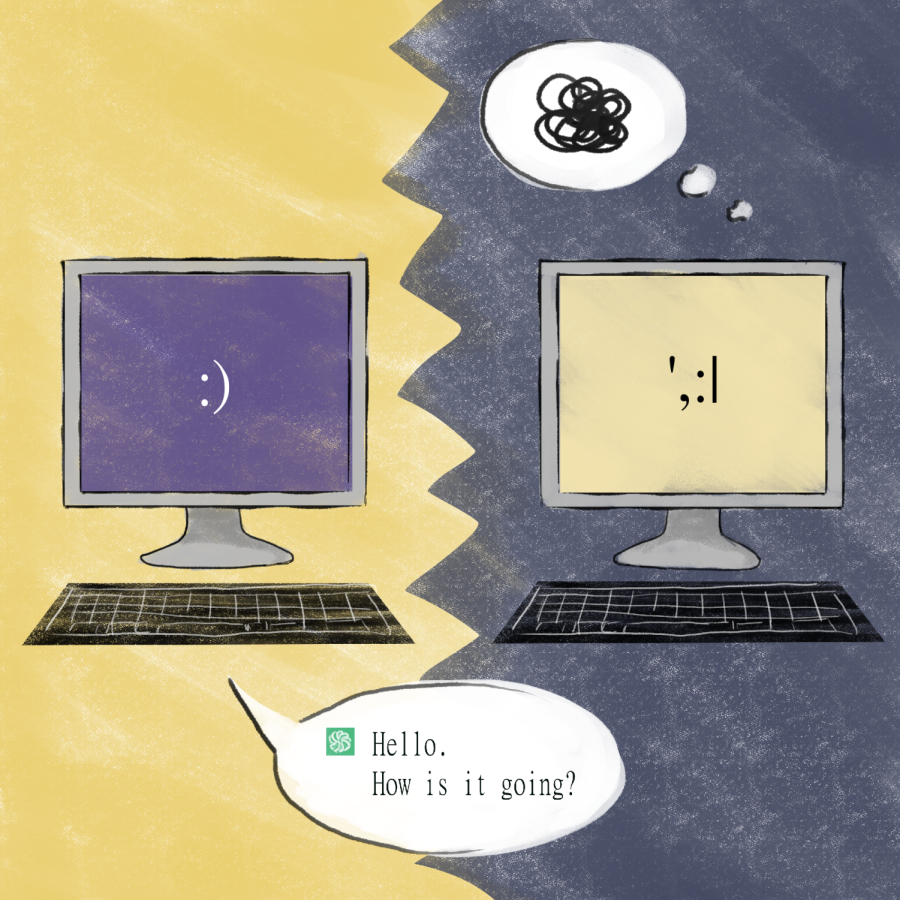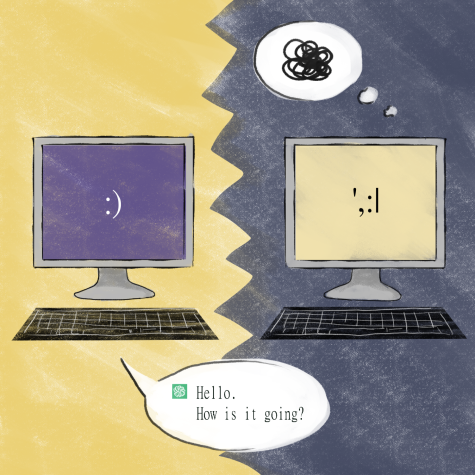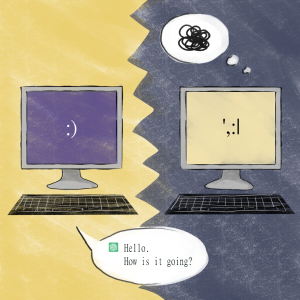‘It’s not a human. It’s a robot’: UT researchers conclude AI must develop critical thinking skills to be effective tool
June 29, 2023
“The keys to the cabinet is on the table.” Wait — that doesn’t sound right.
Artificial intelligence like ChatGPT must develop social skills and world knowledge to avoid mistakes human authors don’t typically make, according to a paper released by researchers from UT, the Massachusetts Institute of Technology and the University of California Los Angeles.
Anna Ivanova, one of the paper’s co-authors, said language is a tool for humans to share information and coordinate actions. She also said language use requires multiple brain functions.
A postdoctoral neuroscience researcher at MIT, Ivanova said formal linguistic skills like understanding grammar rules are handled in the brain’s language network, while a range of functional skills that apply those rules occur throughout the brain. Functional skills include social reasoning, formal reasoning and world knowledge.
“Language has to interface with all of these other capacities, like social reasoning,” Ivanova said. “Oftentimes, logical puzzles are presented linguistically, but then to actually figure out what the logical relationships are, that’s a different kind of skill.”
She said developers train these large language models on word prediction tasks, which allows them to develop strong command over English grammar rules. Newer deep learning models like GPT-3 receive human feedback on their responses in addition to the massive amounts of text they are shown.
“So the models end up being not just good general language prediction machines, but kind of specially tuned into the kind of tasks people want them to do,” said Kyle Mahowald, a linguistics professor at UT.
Ivanova said developers of large language models should separate the formal grammar and language skills from the functional skills to model the modular layout of human brain function.
“Let’s treat each (cognitive skill) separately,” Ivanova said. “Let’s consider each of them as requiring its own module and system for processing this kind of (functional) information.”
Considering the technology’s current limitations, Ivanova said “it’s much safer to use them for language than for things that require careful thought.” She said users cannot rely on the technology for reasoning skills just yet.
Journalism professor Robert Quigley said he facilitates an experimental news website completely produced by artificial intelligence. Quigley said the website features content from large language models like ChatGPT and employs similar models like DALL-E 2 to generate article images.
Journalism senior Gracie Warhurst said the Dallas Morning News Innovation Endowment funds the experiment, called The Future Press. Warhurst, a student researcher at The Future Press, said her team noticed the lack of functional skills in the models’ website responses, much like Mahowald’s paper described.
“Obviously, AI does not have critical thinking abilities,” Warhurst said. “That’s the main reason why it’s not going to take people’s jobs until it does develop (critical thinking), which I don’t foresee happening anytime soon. A human journalist is using their judgment every step of the way.”
Warhurst said journalists and other content creators should use AI to handle busy work, such as editing drafts or writing short briefs. She said the project’s models rarely make grammatical mistakes, and their writing remains mostly unbiased. Warhurst said the biggest downfall of AI in creative industries is the lack of human experience.
“I read a really good article in the New Yorker,” Warhurst said. “(The author) was talking about living in a border city in Texas and his experience growing up there. That’s not an article that you could get ChatGPT to write because it doesn’t have Spanglish. It’s not a human. It’s a robot.”






